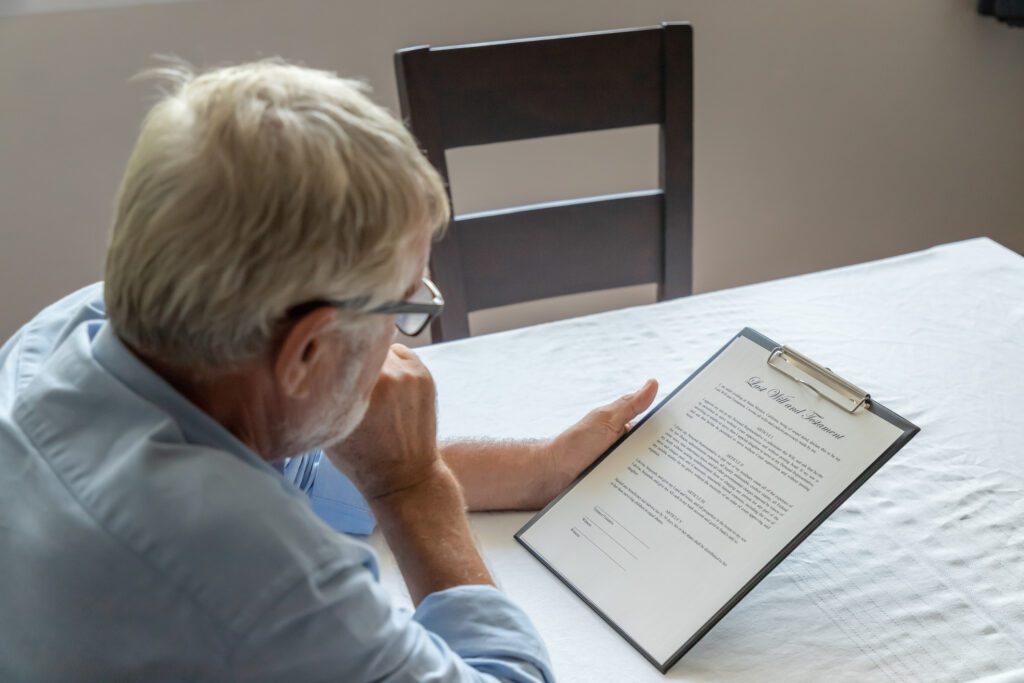A majority of adults have not created a will to ensure their posthumous wishes are fulfilled. Even fewer have outlined instructions for managing their finances while alive. Just Group reports that 60% of individuals aged over 75 lack a power of attorney, a crucial legal document empowering a trusted person to act on their behalf in managing affairs or anticipating future incapacity.
What is a Power of Attorney?
While a power of attorney is commonly linked to overseeing affairs for elderly family members, its significance transcends age. It proves crucial in scenarios of illness, accidents, or unexpected circumstances, making it important for individuals of any age.
A power of attorney is a legal document that authorises someone else to act on your behalf when you no longer have the capacity. It serves as a safety net, ensuring your financial and medical matters align with your preferences. Your chosen attorney can effectively communicate with third parties such as banks, tax authorities, legal professionals, pension firms, and doctors on your behalf.
Who can get Power of Attorney?
There are two legal requirements that you must meet to make a valid power of attorney. You must be:
- 18 years old or over
- Mentally capable of making (and understanding) your decisions.
Why is a Power of Attorney so important?
Having a power of attorney in place is crucial for several reasons, it gives you control over your own affairs and acts as an insurance policy covering unfortunate and unforeseen circumstances that may arise in the future.
A vital reason for having a power of attorney is to avoid family disputes. Confusion and disagreement during difficult decision-making times can be reduced by clearly identifying who has authority to act on your behalf, together with any preferences and instructions for how they are to act. This ensures that your interests are protected and that someone you trust is looking out for you with your best interests at heart.
Emma Brown, a Wills and Probate Solicitor said, “managing someone’s affairs becomes challenging without it, and the DIY online process can be risky. It’s crucial to appoint trusted individuals, as spouses, family, and friends lack the authority to honour your wishes without a power of attorney”.
In emergencies, a power of attorney can expedite decision-making processes. Without a power of attorney, and upon the loss of mental capacity, obtaining the legal authority to make decisions on your behalf can be lengthy and costly, as this would result in the need for an application to the Court of Protection. With a registered power of attorney in place, your designated Attorney can act immediately, saving valuable time and resources.
A power of attorney allows you to maintain control over your affairs even when you are unable to actively participate in decision making. By choosing a trusted individual as your Attorney, you can ensure that your values, preferences, and priorities are respected and upheld, even if you are unable to express them yourself.
Types of power of attorney
You can now obtain two types of power of attorney: ordinary or lasting (previously known as enduring power of attorney before October 2007), both still valid. An ordinary power of attorney permits someone to handle your financial affairs temporarily, such as when living abroad. In contrast, a lasting power of attorney guarantees the preservation of your wishes even if mental capacity is lost due to accident or illness. The two types of lasting power of attorney are health and welfare, and property and financial affairs.
“It’s ideal to have both. You can appoint multiple attorneys and have the option to restrict each one’s responsibilities. For instance, designate one for health matters and another for financial affairs,” advised Emma.
In both scenarios, it is vital to establish power of attorney while you, the donor, still possess mental capacity. Emma emphasised not delaying the process, stating, “Don’t wait until it’s too late. If you genuinely wish to retain control over your finances, it’s something you should arrange while you are able.”
How to get a power of attorney?
To obtain a lasting power of attorney, you can download the forms from gov.uk, with a registration cost of £82 per type. There are over six million registered with the Office of the Public Guardian (OPG), the approving government body ensuring fraud and abuse prevention. A 50% discount is available if your pre-tax salary is below £12,000. Emma advises that the forms are intricate, and any errors, such as an incorrect date or improper signing order, can lead to rejection, causing delays and additional fees. The forms require specific signing order: the donor first, followed by a “certificate provider” (someone not a relative but known to the donor for at least two years, or a professional like a GP or solicitor), confirming the donor’s voluntary decision and understanding of implications. Finally, the attorney signs, with each signature witnessed. GP certification may incur a charge, typically around £50.
Can I apply for a power of attorney myself?
Applying for a power of attorney online is possible, but those with complex needs or uncertainties may benefit from professional advice. Solicitor fees range from £120 to £1,000 based on the number of power of attorneys and level of advice.
The Office of the Public Guardian (OPG) aims for an eight-week processing time, but lawyers suggest it can extend to 15 to 20 weeks, causing distress. Thus, making it crucial to submit a correct application promptly.
The government is digitising the registration process to minimise delays, although the reforms are pending implementation. Mariyam Ferreira, Director and Solicitor, emphasises that obtaining a lasting power of attorney goes beyond mere form-filling.
Mariyam emphasised, “Customising a power of attorney to your specific circumstances enhances its effectiveness, providing peace of mind for both parties. There’s a common concern about relinquishing control to others who might make whatever decisions they want, but that’s not the case.”
Donors can choose which powers to include or exclude in a power of attorney, making it a personalised and individualised document.
What to do with a Power of Attorney?
After registering a lasting power of attorney, store it securely until needed. Emma recommends donors keep a fact file alongside, listing all assets for the attorney’s future financial arrangements. Additionally, leaving a non-binding letter of wishes can be valuable, providing guidance on asset management and preferred medical treatment, especially crucial for health and welfare power of attorneys.
Despite having a registered power of attorney, managing a loved one’s affairs can be challenging. Banks and financial institutions, including pension firms, often misinterpret rules, leading to lengthy delays in legally recognising attorneys. The process is cumbersome, demanding multiple signed copies of the power of attorney, with varying requirements across banks. Emma highlights the difficulty of dealing with banks, sometimes requiring hours spent in branches on behalf of clients.
How can it go wrong when you don’t have a Power of Attorney?
Mariyam revealed a poignant case where our clients’ parents grappled with the loss of mental capacity. The parents, yearning to share their lives until the end, encountered heartbreaking hurdles with nursing homes and government involvement. The family’s wish for them to stay home faced rejection, resulting in a heartbreaking separation. The overwhelming lack of control compelled the family to embark on a financially burdensome court process, a painful journey to obtain the authority to decide on their parents’ best interests.
Seeley Harris has established mypowerofattorney.co.uk to assist families in avoiding similar situations.
Emma advises to never to send original power of attorney documents to financial organisations; instead, use certified copies to prevent potential issues like loss or non-receipt. Attorneys must exercise caution if a donor was making gifts as part of inheritance tax planning before losing mental capacity. Generally, these gifts cannot continue without court consent, and the donor must have granted permission while still able.
Emma emphasises the significant issue of mismanagement of funds by attorneys, including incorrect gifting or tax planning. People mistakenly assume they are the beneficiary, but ignorance is not a defense. In some cases, attorneys continue taking money even after the court has ordered them not to.
It is advisable to seek legal advice, especially if your familial situation is complex, you are undergoing tests for a possible/probable diagnosis or if you have any questions regarding these documents. Emma can provide guidance tailored to your specific needs and circumstances.
By taking proactive steps to establish a power of attorney with a Solicitor, you can ensure that your affairs are managed according to your wishes, even in challenging times.




